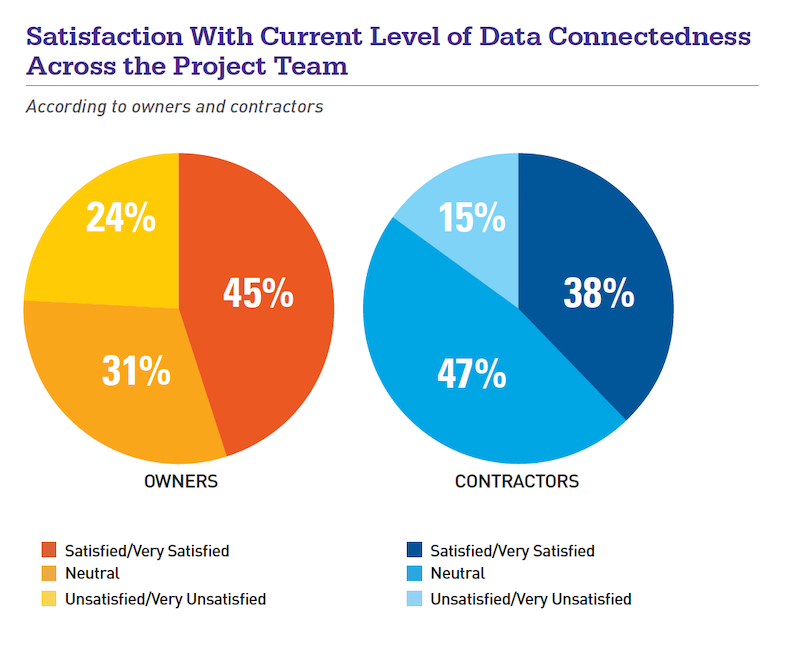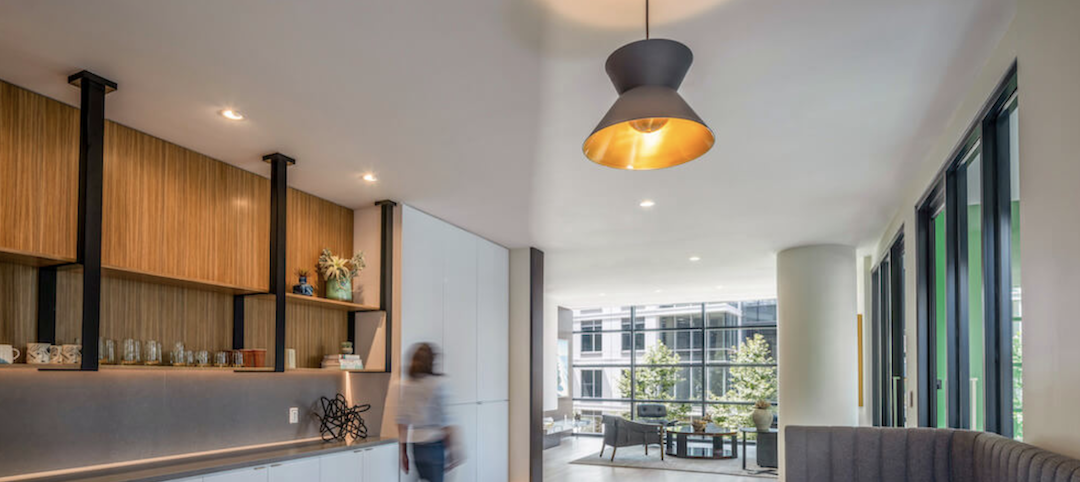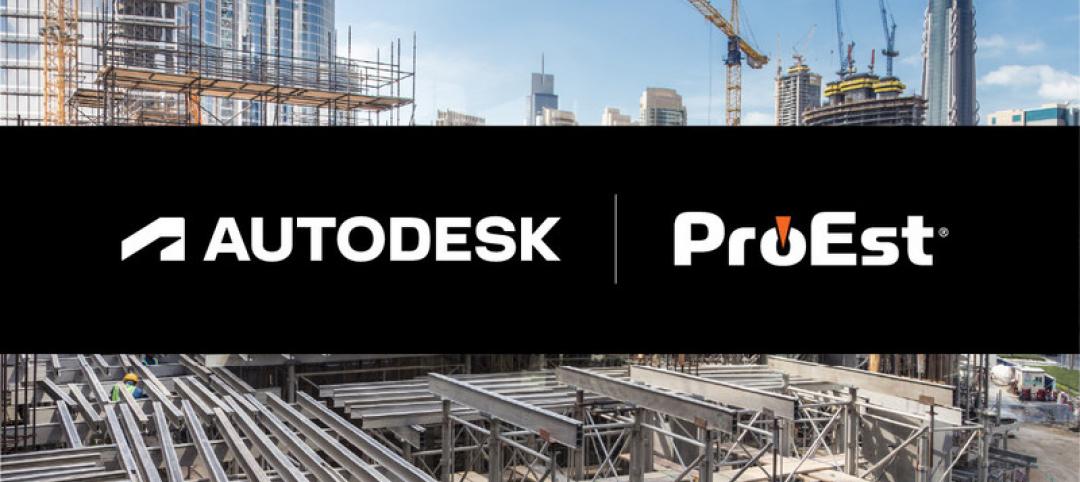A new survey of building owners and contractors highlights the challenges of managing construction projects when software applications lack automated data exchange processes.
The report, “Connecting Owners and Contractors: How Technology Drives Connected Construction,” was released by e-Builder, a Trimble Company, and Dodge Data & Analytics. It is based on responses to online surveys last Spring from 112 contracting companies and 98 building owners. Nearly three-quarters of the contractor respondents identify themselves as GCs. Sixty-nine percent of the owners operate within the public sector, and most focus on education, government, or healthcare projects.
Among these companies, 57% of owners and 52% of contractors say they use Project Management Information Systems (PMIS). However, these systems often are not compatible: only 16% of contractors say that an owner’s PMIS is the same as their own, and only 14% say they can integrate the two systems. But owners appear to have the upper hand here, as seven out of 10 owner-respondents with PMIS require contractors to use the owner’s system. More than half of these owners deploy their systems on more than half of their projects.
Consequently, about two-fifths of contractors say they end up using the owners’ systems and their own, leading to double data entry that, the survey found, has a negative impact on worker productivity, workflow, accuracy, decision making, and scheduling.

The survey finds that most owners insist that their PMIS prevail as the system used. That demand can present more work for contractors that also prefer to use their own systems.
More than one-third of contractors say they use the owner’s PMIS exclusively. The risk for contractors that use an owner’s PMIS, according to the survey, include increased costs, lack of proper documentation in the event of a claim, lack of project performance data and reports.
The disconnect, however, is that contractors see all these risks as being much bigger problems than owners do. Only two fifths of contractors are satisfied with the status quo, compared to nearly three fifths of owners. Contractors, though, also tend to be more neutral than owners about these systems’ incompatibilities, apparently accepting inefficiencies as part of doing business.
The irony is that there’s consensus among contractors and owners about, and a high level of satisfaction with, the overall benefits of using PMIS to handle such things as submittals and RFIs. Sixty-five percent of owners and 51% of contractors see high/very high value in a single platform that all parties use on projects for data management. “Both believe that creating a more seamless workflow for their processes would increase the value they receive,” the report states.

Contractors and owners agree that there's value in managing projects using a single, seamless system.
The report quotes Aaron Haas, Executive Vice President and construction manager with Howard Hughes, that within such a seamless scenario “there should be no miscommunication about cost, change orders, RFIs, submittals; it’s all one unified system.” Contractors in general believe that the key to accelerating this project process, and to getting paid quicker, is better data exchange.
But the industry has a ways to go to reach that plateau. The survey finds that 73% of contractors still use manual methods to measure project progress on more than half of their jobs, and 49% of pros subjectively estimate project progress on more than half of their jobs.
\More than a quarter of contractors don’t use a PMIS because they think it’s too expensive, and 23% think it’s too complicated. But 58% expressed a moderate to higher interest in using a system within the next three years.
Related Stories
AEC Tech | Apr 19, 2022
VDC maturity and the key to driving better, more predictable outcomes
While more stakeholders across the AEC value chain embrace the concept of virtual design and construction, what is driving the vastly different results that organizations achieve? The answer lies within an assessment of VDC maturity.
AEC Tech | Apr 13, 2022
Morphosis designs EV charging station for automaker Genesis
LA-based design and architecture firm Morphosis has partnered with automotive luxury brand Genesis to bring their signature brand and styling, attention-to-detail, and seamless customer experience to the design of Electric Vehicle Charging (EVC) Stations.
AEC Tech | Apr 13, 2022
A robot automates elevator installation
Schindler—which manufactures and installs elevators, escalators, and moving walkways—has created a robot called R.I.S.E. (robotic installation system for elevators) to help install lifts in high-rise buildings.
Hotel Facilities | Apr 12, 2022
A virtual hotel to open in the metaverse
A brand of affordable luxury hotels that launched in 2008, citizenM has announced it will purchase a digital land site in The Sandbox, a virtual game world owned by Animoca Brands.
Modular Building | Mar 31, 2022
Rick Murdock’s dream multifamily housing factory
Modular housing leader Rick Murdock had a vision: Why not use robotic systems to automate the production of affordable modular housing? Now that vision is a reality.
AEC Tech Innovation | Mar 9, 2022
Meet Emerge: WSP USA's new AEC tech incubator
Pooja Jain, WSP’s VP-Strategic Innovation, discusses the pilot programs her firm’s new incubator, Emerge, has initiated with four tech startup companies. Jain speaks with BD+C's John Caulfield about the four AEC tech firms to join Cohort 1 of the firm’s incubator.
AEC Tech | Feb 11, 2022
Trimble Dimensions+ 2022 Call for Speakers Now Open
Trimble has opened its Call for Speakers for the Trimble Dimensions+ 2022 User Conference, which will be held November 7-9 at the Venetian Resort in Las Vegas.
Coronavirus | Jan 20, 2022
Advances and challenges in improving indoor air quality in commercial buildings
Michael Dreidger, CEO of IAQ tech startup Airsset speaks with BD+C's John Caulfield about how building owners and property managers can improve their buildings' air quality.
Architects | Dec 20, 2021
Digital nomads are influencing design
As our spaces continue to adapt to our future needs, we’ll likely see more collaborative, communal zones where people can relax, shop, and work.
AEC Tech | Dec 16, 2021
Autodesk to Acquire Cloud Based Estimating Company ProEst
Autodesk, Inc. is acquiring ProEst, a cloud-based estimating solution that enables construction teams to create estimates, perform digital takeoffs, generate detailed reports and proposals and manage bid-day processes. Autodesk plans to integrate ProEst with Autodesk Construction Cloud, a comprehensive construction management platform connecting teams, data and workflows across the entire building lifecycle.















